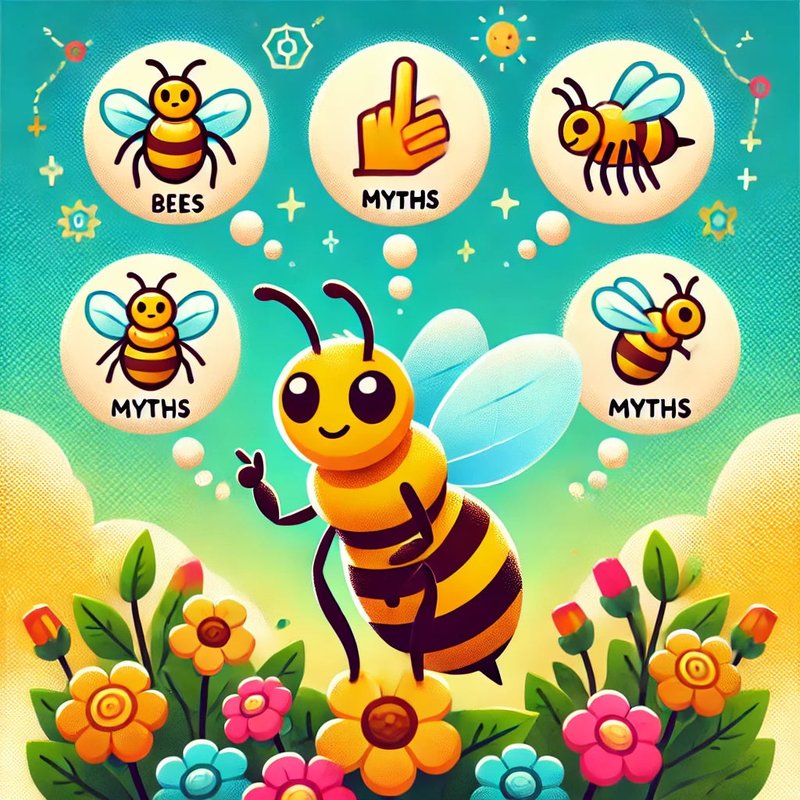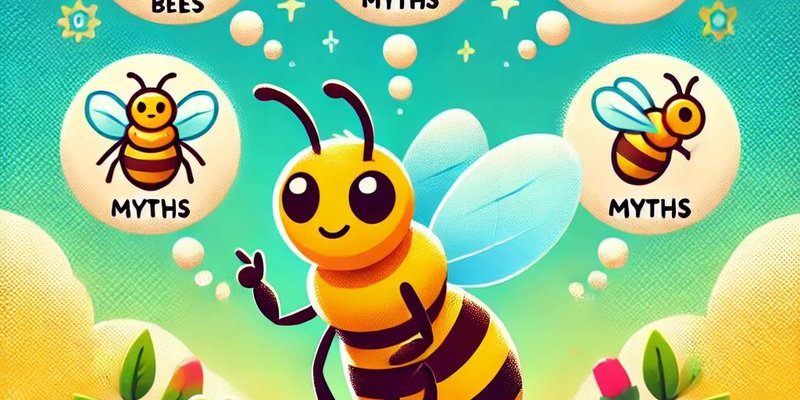
You might be wondering why mason bees deserve your attention. Well, just like honeybees, they help pollinate a variety of plants, but they do so in unique ways. They’re solitary creatures, which means they don’t live in hives but rather create their own nests, often in hollow stems or small cavities. Understanding them better can help us appreciate their contributions and debunk some common myths surrounding these incredible pollinators.
Mason Bees Are Aggressive
One of the biggest myths about mason bees is that they’re aggressive. Honestly, that couldn’t be further from the truth. These bees are solitary and generally docile. Unlike honeybees that can become defensive when protecting their hive, mason bees have no hive to defend. They don’t sting unless they feel terribly threatened, which is pretty rare.
To put it into perspective, think of them like your friendly neighbor who’s more interested in gardening than in arguing over a fence line. If you leave them alone and respect their space, they’re more likely to keep busy pollinating flowers rather than bothering you. If you’re working in your garden, you might see them buzzing around, but chances are they’ll just be focused on their tasks.
So, if you’re worried about getting stung while enjoying the outdoors, you can relax. Mason bees are here to help, not harm.
Mason Bees Only Pollinate One Type of Flower
Another common belief is that mason bees only pollinate a specific type of flower. Here’s the thing: these little pollinators are actually quite versatile! While they do have preferences for certain plants, they are not limited to just one type.
Mason bees are known to pollinate a wide variety of flowers, including fruit trees like apple and cherry, as well as wildflowers. Picture it like a buffet: they’ll sample from different dishes, making them excellent contributors to biodiversity. This ability helps ensure that various plants can thrive, which is crucial for a healthy ecosystem.
In fact, their efficient foraging habits make them better pollinators for some crops than honeybees. Their bodies are covered in fine hairs that collect pollen, helping them transport it from one flower to another, which maximizes pollination. So, when you see mason bees buzzing around, know they’re not only after one type of flower—they’re on a mission to support a rich variety of plants.
You Don’t Need to Provide Nests for Mason Bees
Some folks might think that mason bees can just fend for themselves without any help from us. While they’re great at finding their own nesting spots, providing them with suitable homes can really boost their populations. If you’re serious about welcoming these pollinators into your garden, consider installing a nesting box or creating natural habitats.
Mason bees like to lay their eggs in small cavities, such as hollow stems or drilled wooden blocks. If you want to be a good neighbor to these bees, you can create a simple nesting box using small tubes or holes carved into wood. This will mimic their natural nesting conditions and make them feel right at home.
The more nesting options you provide, the more likely you are to attract these valuable pollinators to your garden. Just imagine the beautiful flowers that will blossom with the help of your newly established mason bee colony!
Mason Bees Are Only Active in the Summer
You might think that since summer is the height of blooming flowers, mason bees are only buzzing around during those months. But here’s a fun fact: mason bees tend to be more active in the spring! They emerge from their nests when temperatures warm up, typically around March or April, just as flowers begin to bloom.
While they might not be as visible during the hotter months, their role in early spring is crucial. They’re busy pollinating early-blooming plants, ensuring that the flowers can set fruit before the heat of summer arrives. Just like an early bird gets the worm, mason bees help kickstart the growing season.
By the time summer rolls around, many of them may have already completed their life cycle and laid their eggs for the next generation. So, if you want to catch a glimpse of these hardworking bees, spring is the perfect time to look for them!
Mason Bees Are Just a Pest
There’s a misconception that mason bees are just a nuisance in the garden. However, this couldn’t be more misleading. In fact, these little bees are like the unsung heroes of the gardening world! Their pollination efforts are vital for many crops and wildflowers, greatly enhancing both beauty and productivity in our gardens.
Imagine your favorite fruits and vegetables—many rely on pollination to flourish. Mason bees are particularly effective at this because they visit flowers more frequently than honeybees. They can boost your garden’s yield, leading to more vibrant blooms and delicious produce. By welcoming these bees, you’re not just helping the environment—you’re also setting the stage for a bountiful harvest!
So, rather than viewing them as pests, think of mason bees as your garden’s allies, helping to create a flourishing oasis right in your backyard.
Mason Bees Don’t Have a Role in Honey Production
Another common myth about mason bees is that they have no role in honey production. While it’s true that mason bees don’t make honey like honeybees do, they still play an essential part in the larger ecosystem of pollinators. Their work ensures that many plants produce fruits and seeds, which are crucial for the health of the environment.
You might say that mason bees and honeybees are like different musicians in a band—each has its specialty, but together, they create a harmonious balance in nature. Honeybees are the ones that create honey, while mason bees focus on pollination. Without the hard work of mason bees, many plants would struggle to thrive, leading to fewer food options for both humans and wildlife.
So, while you won’t find mason bee honey at your local store, their importance in nature’s orchestra cannot be overstated. They remind us that every role in our ecosystem matters.
In summary, mason bees are mild-mannered superheroes in the gardening world, and debunking these myths can help us appreciate them even more. From being gentle pollinators to supporting a variety of plants and contributing to biodiversity, they have so much to offer. By taking the time to understand these remarkable bees, we can create a welcoming environment for them in our gardens.
So, if you’re looking to boost your garden’s productivity or simply enjoy a more vibrant outdoor space, consider giving mason bees a helping hand. Installing nesting boxes, planting a variety of flowers, and respecting their space can encourage these essential pollinators to thrive. After all, the more we support our local wildlife, the healthier our environment becomes.

